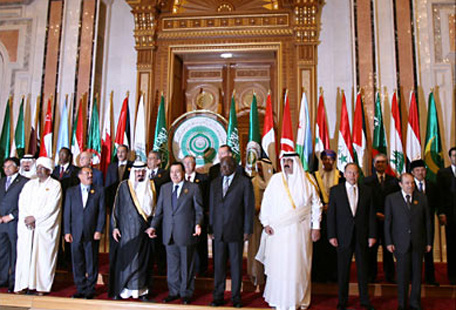Arabs Will Not Enter War with Iran

 Mohammad Karamirad, a member of Parliament’s National Security and Foreign Policy Commission, analyzing the recent positions of Arab countries on Iran, argues that any activity against Islamic Iran, whether verbal threats or military conflicts, is surely doomed to failure.
Mohammad Karamirad, a member of Parliament’s National Security and Foreign Policy Commission, analyzing the recent positions of Arab countries on Iran, argues that any activity against Islamic Iran, whether verbal threats or military conflicts, is surely doomed to failure.
IRD: Mr. Karamirad, in recent days the Persian Gulf states took some stances against the Islamic Republic of Iran. In your opinion, what is the reason for those stances?
MK: Currently, the most important problem facing the states of the Persian Gulf region is occupiers, particularly the US and England, who have established military bases in the region to maintain their interests and have always exploited and fooled the authorities of the Persian Gulf Countries. Some leaders of these countries- with regard to the poisonous propaganda of the US and the West on Iran-phobia and Shiite-phobia- have been trapped. Despite the fact that Iran has always announced its policies based on friendly and brotherly relations with neighboring countries, particularly the Persian Gulf states, it is natural that the authorities of some Arab countries are affected to some extent because of a particular commitment to the US and its own arrogance.
IRD: It seems that the West wants Iran-phobia to prevail in the region. What are the aims of this action?
MK: One of the West’s objectives in the region, particularly of the US’, is to find markets for their armament factories and the Arab countries of the Persian Gulf have been the best customers in the last few years. In recent years, the West have been equipping the military powers of these countries with many modern facilities and weapons. In fact, these Western countries take oil, and replace it with weapons.
On the other hand, due to the West’s armament interaction with the states, it is natural that sometimes these countries provide some services to the West, and adopt positions completely in alignment with their interests. Today, if Muslim countries acted based on the advice of the Imam and the Supreme Leader, Muslims would have a unique and united power and wouldn’t let the infidels, colonialists, and especially Zionists, be in secure borders, while an Islamic awakening would start.
IRD: What is the aim of Arab countries in their conflict with Iran?
MK: Two kinds of conflicts can be followed: A kind of verbal clash and political and discourse conflict not unprecedented in Iran’s relations with Arab countries and seen in the relations between countries. But sometimes, by conflict we mean a military conflict, such as the nonsense that the Saudi minister of foreign affairs expressed, and threatened our country with.
In this context it should be said that they cannot do it: neither Saudi Arabia nor any other country has ability or strength to stand up against a strong and brave nation of Iran. Now, Islamic Iran is at its best defensive condition, such that their masters (the West) are not capable of attacking it, let alone countries where their failure is evident.
Some time ago one of the Israeli figures said that Israel was not concerned about the increase in the weaponry of Saudi Arabia, because Saudi Arabia is not a threat to them. The reason for this is that they do not have the courage to attack them. When the Zionists have such an understanding of the Saudis, the perception of Iran is much stronger, as the Zionist occupying regime lost the thirty-three-day war with Hezbollah, which had the least facilities, and it was vanquished in the twenty-two-day war with Hamas and Islamic Jihad in Gaza. This fact about Iran is unassailable, with an army corps and strong armed forces equipped with modern weapons and military equipment.
IRD: To what extent are these positions against recent developments in the Middle East and the popular movements of these countries related?
MK: There is no doubt that one of the US policies in these developments is to deviate the awakening of the Islamic countries. I think this position partly is because of weaknesses, to cover up their own internal problems.
I think that the leaders of the Arab countries of the Persian Gulf should be more vigilant than this. They should be careful that their internal weaknesses and rot do not shake their foundations, and do not have the fortune of Nimrod who relied on a termite-eaten wall, fell, and died. The leaders of these countries are not any stronger or steadier than Mubarak, who ruled for thirty years like a Pharaoh.
Based on the divine tradition referred to in the Quran, their fate is to fail. So it is better that the leaders of these countries accompany their people and set aside the conflicts with the freedom-seeking Islamic Republic of Iran. They may do such things, but any measures against Iran are surely doomed to failure, whether in form of conflict or military threat.

